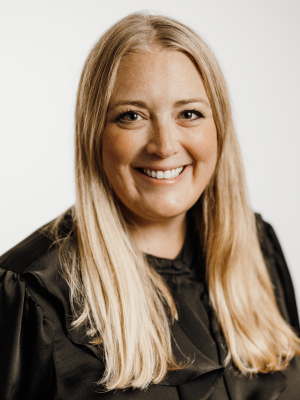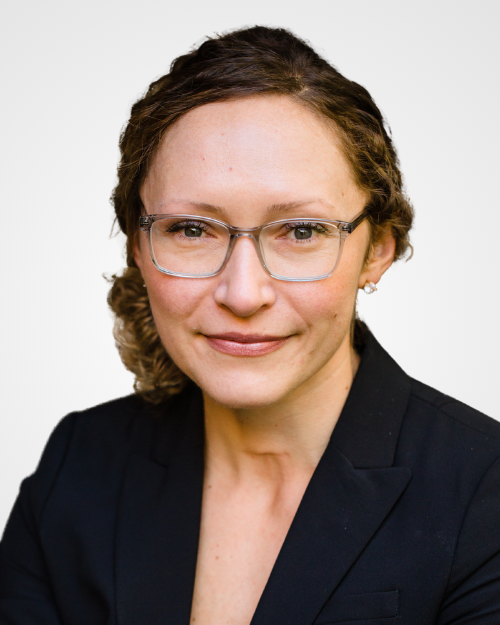Campaign Committees: Love Them or Leave Them?

Fundraising at its core is about human connections and personal relationships: two things that are paramount during campaign planning and campaign committee formation.
As relationships with donors evolve in an increasingly virtual world, traditional approaches to campaign planning are becoming less broadly applicable. When it comes to campaign committees, or any other fundraising program or strategy, CFA does not shy away from questioning the status quo or finding new solutions that will yield results in today’s philanthropic environment.
With more than a decade of experience in nonprofit development, CFA Senior Manager of Campaigns Anne Spears works alongside clients as a partner in their campaigns. “Campaign committees have been a mainstay in campaign execution, and the thought of navigating a campaign without one feels like uncharted territory,” shares Anne. “But they are not always essential – and occasionally detrimental – to the fundraising process.”
Whether your organization has a campaign on the horizon or is seeking to strengthen your major gifts program, consider how deeper relationships with key donors can advance your mission in the present while setting up your organization for future fundraising success.
DONOR RELATIONSHIPS ARE EVOLVING
Some organizations are turning away from traditional, relationship-based fundraising methods in favor of mass communication and online engagement. While virtual communications and social content may reach a broader audience of potential supporters, these strategies are less likely to sustain and increase giving without developing personal donor connections. Real connections simply cannot happen without person-to-person interactions and conversations.
Anne shares, “Younger generations are pulled in even more directions than before, and people are choosing to spend their time differently. Authentic donor engagement and relationship-building is evolving and we need to give donors the opportunity to be known as people.” This confluence of trends, resulting in an increased breadth and decreased depth of donor relationships, poses a significant challenge for organizations preparing for a campaign.
CAMPAIGN COMMITTEES MAY NEED TO EVOLVE, TOO
Successful campaigns remain largely unchanged in their reliance on a focused set of influential relationships. Traditionally, campaigns are led by one or more committees comprised of key organizational stakeholders and influential, high-capacity donors. Effective campaign committees bring an infusion of energy and passion for the campaign’s vision and leverage personal and professional connections to expand the campaign’s reach.
- CFA’s Guide to an Effective Nonprofit Campaign Committee offers key considerations for organizations seeking to assemble a more traditional volunteer committee that will serve as the driving force behind their campaign.
Yet, traditional guidance for recruiting a campaign committee does not account for the nuanced and evolving relationships organizations may have with supporters. Anne has supported many CFA clients to successfully conduct campaigns and brings a unique perspective to the forces impacting campaign committee selection. “The assumption is that organizations are sustaining and intentionally deepening relationships with influential and high-capacity donors, and that is not always the case.”
For organizations with a nontraditional set of key stakeholders, such as highly engaged volunteers with limited connections to high-capacity donors, Anne advises her clients to be realistic and work with the relationships and connections they have to achieve their goals.
RETHINKING CAMPAIGN COMMITTEES
Campaign committees require strategic coordination from development staff, and a commitment to both the campaign AND the organization’s mission to be successful. As campaign committees shift in their purpose and strategy, Anne encourages her clients to evaluate their relationships with donors before engaging a campaign committee. “At the end of the day, you really need people to open doors, get meetings, and make connections.” Thinking expansively about the organization’s stakeholders, audiences, and beneficiaries – including both present and past generations – can reveal leaders and volunteers willing to rise to the occasion.
A common misstep is recruiting individuals with a high capacity to give but without the passion or personal bandwidth to assume the additional responsibility. As Anne shares, “Ultimately, individuals want to add value beyond their checkbook, to be seen as authentic partners in the work.” If the relationship has not been cultivated over time, or if the connection to the organization’s mission and leadership is not strong, it will become evident when campaign activity gets underway.
As organizations identify prospective volunteers, CFA encourages authentic conversations to identify how each volunteer envisions supporting the campaign. Not every volunteer needs to assume the same traditional campaign activities (i.e. requesting meetings, soliciting donors), but by creating an intentional volunteer engagement plan for each committee member, organizations can maximize their skill sets, value add, and level of engagement in the campaign.
For organizations considering campaign committee alternatives, one or more of the following options may produce a stronger return on investment:
- Establishing a committee in name only to provide a vote of confidence for the organization and campaign.
- Partnering with select volunteers such as board members and loyal donors to make introductions, request meetings, and host cultivation events.
- Relying on internal staff capacity to cultivate and solicit donors.
With or without a campaign committee, relationships are fundamental to fundraising success. As Anne attests, “Organizations need external partners that bring financial resources, volunteer capacity, influence and advice to guide the organization’s trajectory.” Ultimately, organizations that have invested early on in these relationships, by engaging their board members, donors, and key stakeholders, will find a much smoother path to reaching their campaign goal.
CFA IS HERE TO HELP!
While so much in philanthropy is evolving, one constant remains: the importance of relationships, not only in campaigns, but across every facet of fundraising. Relationships still take time to develop, and there is no time like the present to deepen relationships with your organization’s most important supporters.
At CFA, we believe there is “no one size fits all” when it comes to planning campaigns and selecting the committees that run them. That’s where our combination of art, science, and custom solutions comes in, because each organization we serve is as unique as the individuals that lead and support them. Our consultants offer coaching, strategic guidance, and custom tools for effectively deploying campaign committees (or finding more successful alternatives!) that will engage donors and inspire support.
If you are interested in exploring how CFA can support your organization’s donor engagement strategy or next campaign, contact CFA today to see how we can help.
Anne Spears, Senior Manager of Campaigns
An experienced fundraiser with over a decade of experience in education, religious, and social service based nonprofit fundraising, Anne is passionate about the work being done by nonprofit organizations. She is energized and inspired by working side by side with our nonprofit partners as a project manager for fundraising campaigns.
Prior to joining CFA, Anne was the Director of Development at the Episcopal Diocese of West Texas where she oversaw a multitude of initiatives including capital campaigns for Diocesan camp facilities from the South Texas Coast to the Colorado Rockies, campaigns to assist asylum seekers traveling from Mexico to the U.S., and consulted with the 87 Diocesan churches regarding their fundraising needs.
Previously, Anne was the Chief Development Officer for Ascension DePaul Services of San Antonio and the Development Coordinator at St. Thomas Early Learning Center in College Station, Texas. She also worked for the State of Montana as a social services specialist serving indigenous and rural populations.
Anne has a B.S. in Sociology, a M.S. in Family and Child Studies, along with a Master of Public Administration. She also is a Certified Fundraising Executive (CFRE).
Anne lives in San Antonio, Texas, with her husband and three children.
Kendall Carlson, Content Writer
A frequent contributor to CFA’s digital content, Kendall Carlson has spent her career advancing nonprofit organizations across the Twin Cities. With 16 years of experience, Kendall brings a balance of strategic and operational leadership spanning fundraising, program development, evaluation, and strategic planning.
Most recently, Kendall served as Development and Communications Director at Hired, where she diversified revenue for the organization’s $11M budget and increased individual giving by 60%, led a rebrand, and launched an organization-wide data for impact initiative. Prior to Hired, Kendall served at Greater Twin Cities United Way, where she led an advancement strategy team to increase investment and engagement from the organization’s top corporate and major donors. Kendall is known as a strategic, solution-oriented leader with a high capacity for detail and commitment to quality. She launched her consulting practice, Luminate Consulting, in 2022 to bring her skills in fundraising and program strategy to nonprofits seeking sustainable growth.


